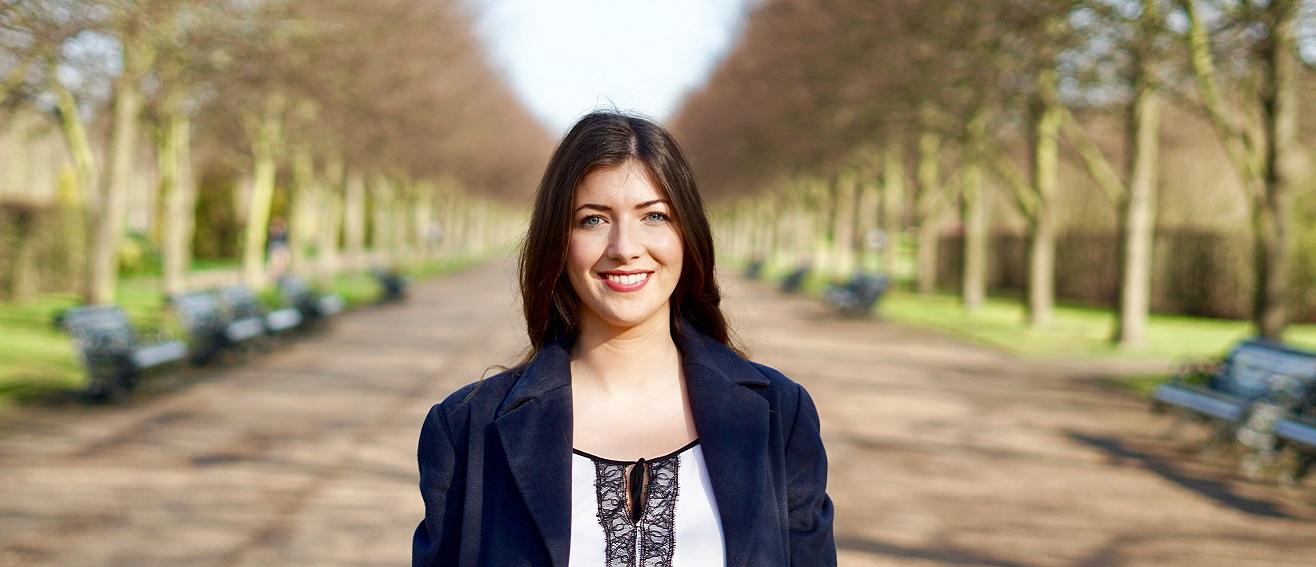
Juliette Anne Luxford, student, BSc Operating Department Practice
Juliette tells us why she chose to study at LSBU, what it takes to be an operating department practitioner and how the role has changed during the coronavirus pandemicWhat made you want to study at LSBU?
The links to some of London’s world-class hospitals offering excellent placement opportunities meant that LSBU was a natural first choice to take up studies for an ODP career. This, combined with the industry expertise of the course lecturers, means it’s a great place to start out as a student ODP.
The simulation facilities at the university provide a perfect opportunity to observe real life scenarios in a student setting allowing practical insight to the theory learnt in the classroom.
What does being an operating department practitioner mean to you?
To be an ODP means to be entrusted with the life of each patient whilst they are anaesthetised, whether for a routine operation or a lifesaving surgical procedure.
As an ODP I am the patients advocate during a time they are most vulnerable and this means ensuring every step of their perioperative journey is carried out with the highest standards of patient care, whilst maintaining their dignity and safety throughout. To be able to take on such a valuable role has been a real privilege.
Tell us about a typical day for an ODP student?
Whether working within anaesthetics, surgical scrub or post-operative recovery, my day typically starts at 7.30am. Having changed into my scrubs I check my allocation for the day, which could be within adult, paediatric, or maternity theatres.
I then make my way to the operating theatre to do a full check of the anaesthetic machines and surgical equipment required for the day, and will make sure the drugs are well stocked for the days scheduled operations.
After a briefing with the anaesthetic and surgical teams the first patient will arrive at about 8:30am. Meeting with the patient enables me to establish any additional requests or needs that they may have and help them feel at ease before their procedure. If working with the anaesthetist I assist with induction of anaesthesia and securing of the airway. If I’m assisting the surgical team I support the surgeon throughout the operation, which could involve assisting in anything from emergency surgery to routine operations. If working in recovery I prepare for the patients’ arrival to the recovery room. One day could involve procedures for up to as many as eight patients depending on the surgical specialty.
After lunch I will assist the afternoon operations and the day will usually finish around 5:30pm. On occasions where operations may overrun it is an opportunity to stay and continue to learn.
A typical day at university involves attending lectures starting from 9am and is a nice opportunity to catch up with classmates and share stories
What do you feel about the role your profession has played during the coronavirus pandemic?
With the role of the ODP being primarily focused on the vital care of the patient, it’s only natural that whilst routine operations have been reduced, our expertise have been immediately put to use within the most urgent areas. This has involved assisting with intubations of Covid-19 patients, monitoring patients whilst they are ventilated, and assisting in their recovery.
It has been rewarding to see our skills transfer directly from theatre to critical care, and has been a privilege to work alongside healthcare professionals we wouldn’t ordinarily be teamed up with, allowing for greater learning opportunities. Whilst the current situation may have increased our working hours, seeing the positive impact our role has made has meant we haven’t noticed the time pass.
What message would you give to anyone thinking about studying and going into a career in ODP?
Every day brings something different, and every day makes me feel extremely grateful for the opportunities this role offers. I would encourage anyone considering a similar career path to attend university open days, to meet the teaching team, and explore the university and facilities it offers. The work placements provide so much in that you are able to assist first hand in life saving scenarios and have found it a really rewarding experience so far.